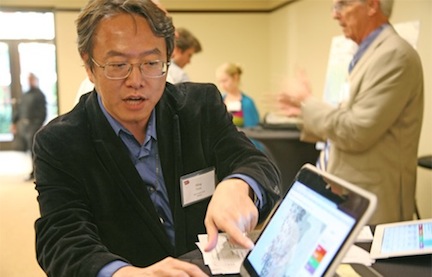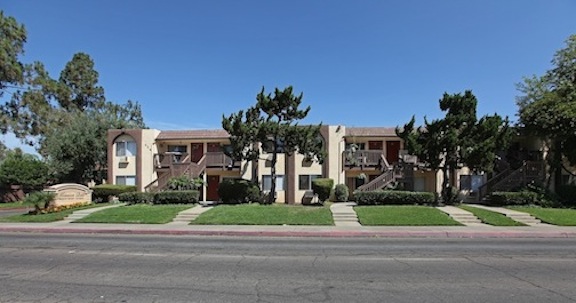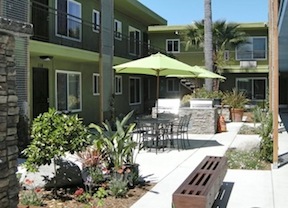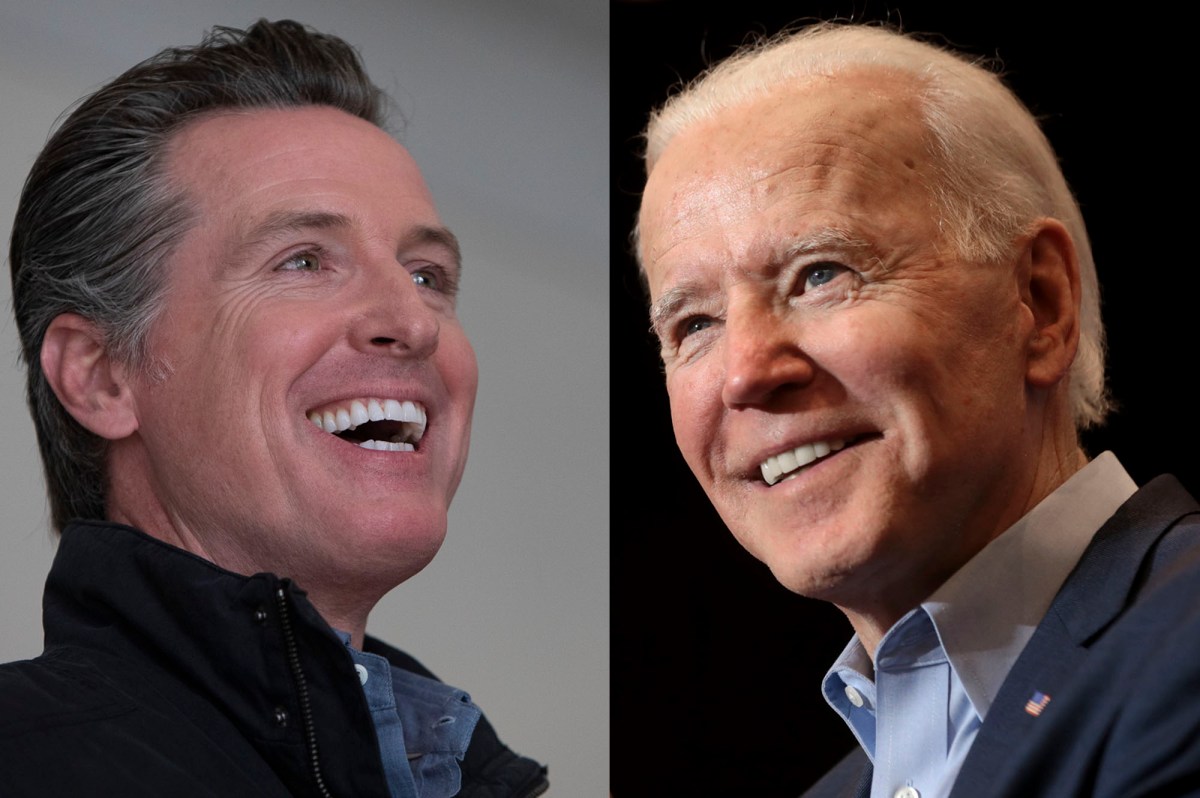Daily Business Report-Nov. 20, 2013
Councilmen Kevin Faulconer, left, and David Alvarez are set for a election for San Diego mayor.
Faulconer vs. Alvarez in San Diego Mayoral Runoff
City News Service — Councilmen Kevin Faulconer and David Alvarez will face each other in a runoff election for San Diego mayor on a still-to-be scheduled date early next year.Faulconer led a field of 12 candidates in Tuesday’s special election with 43.58 percent of the vote, with vote by mail ballots and all 581 precincts counted, according to figures released by the San Diego County Registrar of Voters.
Alvarez finished 2,638 votes ahead of former Assemblyman Nathan Fletcher in the race for second. He received 52,283 votes, 25.59 percent of the vote, and Fletcher 49,645, 24.3 percent.
The only other candidate to receive at least 1 percent of the vote was former City Attorney Michael Aguirre, who finished fourth with 4.44 percent.
Because no candidate received a majority, a runoff will be held. City Attorney Jan Goldsmith told KUSI city officials were looking at Feb. 11 for the runoff.
“When we started this campaign, we said we were going to have an opportunity to get our city back on track, and tonight, we took a huge step forward to do exactly that,” Faulconer told cheering supporters at the U.S. Grant Hotel Tuesday.
Alvarez campaigned on strengthening San Diego’s neighborhoods and had the backing of the county Democratic Party and San Diego and Imperial Counties Labor Council, an umbrella group for the region’s unions.
Fletcher gained the support of individual unions and numerous state elected officials. In brief comments, Fletcher told his supporters he was proud of the support he was given.
For the full story, click here…

Hashtag Health
SDSU geography professor Ming-Hsiang Tsou’s method
of using Twitter to track the spread of influenza is producing results
As the United States enters the sniffly, sneezy heart of flu season, a social media–monitoring program led by a San Diego State University researcher could clue in physicians and health officials to when and where severe outbreaks are occurring in real time.
SDSU geography professor Ming-Hsiang Tsou, who leads the project, follows disease-related keywords that pop up on Twitter in order to identify locations where outbreaks of influenza are occurring, sometimes weeks before traditional methods can detect them. Last month, the first results from the project were published in the Journal of Medical Internet Research. Tsou’s technique might allow officials to more quickly and efficiently direct resources to outbreak zones and better contain the spread of the disease. “There is the potential to use social media to really improve the way we monitor the flu and other public health concerns,” Tsou said.
Public Hearing Thursday on Proposed Water Rate Hikes
The price of water might rise again in the city of San Diego. This week San Diego city residents will get a chance to speak out about proposed water rate hikes at a public hearing on Thursday at San Diego City Hall. At issue are two consecutive years of proposed water rate hikes of more than 7 percent. The city says the increase is needed to cover both future increases and compensate for increases since 2011. The combined rate hikes would increase a typical family’s water bill by more than $80 a year.
San Diego’s water rates have gone up dramatically in the past decade and water officials predict increases are likely to continue for the foreseeable future.
The public hearing is set for 10 a.m. in the City Administration Building, 202 C St., 12th floor, Council Chambers. — KPBS report

Mission Bell Apartment Homes Sold
ESCONDIDO — Mission Bell Apartment Homes at 624 East Mission Avenue have been sold for $5,175,000. The buyer is listed as 3630 Bayside LLC. The seller was Fowler Property Acquisitions. Mission Bell Apartment Homes is a two-story walk up community that was built in 1973. The complex consists of 38 two- and three-bedroom units on 1.73 acres. The property includes a swimming pool, landscaping and on-site laundry. Unit amenities include walk-in closets, covered parking, individual air conditioning and balconies or patios.
TAG Names Leader of Corporate Accounting Division
TAG, the accounting and enterprise software consultancy firm, has selected Scott Zimmer to lead the Corporate Accounting Division — one of three operating units within the organization. As vice president, Zimmer will manage a team that provides services to companies Southern California. Zimmer previously held a number of senior management positions, including most recently president and CFO of a regional Microsoft systems integrator. Earlier, Zimmer served as both CFO and controller of Cobra Golf Inc., which was eventually sold to American Brands for $720 million. He earned a bachelor’s degree from UCLA.
Chilcott Re-Elected to National Lenders Group
Kurt Chilcott, president and CEO of CDC Small Business Finance, has been re-elected by industry peers to serve another three-year term on the board of directors of the National Association of Government Guaranteed Lenders.
The association supports lenders that participate in Small Business Administration (SBA) lending, providing the small businesses access to long-term capital critical to fueling start-ups and emerging companies. The association is overseen by a board of directors made up of 19 elected voting representatives and six ex officio voting members. Chilcott will serve as one of two directors representing CDCs which participate in the SBA 504 program.
************

Last Local Low-Income Solar Project Dedication
The final project in a program that has provided 2.6 megawatts of clean solar power to low-income San Diegans is to be dedicated during ceremonies at the Townspeople Apartments in Normal Heights today.
The 34-unit Townspeople Apartments installed a 58-kilowatt solar photovoltaic (PV) system with financial assistance from the California Solar Initiative’s Multifamily Affordable Solar Housing (MASH) Program. During the dedication event, the California Center for Sustainable Energy, MASH administrators in San Diego County, presented Townspeople Inc. with a rebate check from the program for $136,014.
The Townspeople solar PV system will benefit residents by lowering their utility costs by about $290 a year per apartment. By substituting solar for conventional electricity, the residents will lower their carbon footprint, offsetting some 136,460 pounds of carbon dioxide annually, equivalent to removing the greenhouse gas emissions of 25,790 cars annually. Precision Electrical Co. of San Diego installed the solar system.
“Making solar technologies available to residents of all income levels is a crucial part of the California Solar Initiative and the overall growth of the solar industry in California,” said Len Hering, executive director of the California Center for Sustainable Energy (CCSE). “Low-income housing developments traditionally have not had the resources to obtain solar, but the MASH Program, combined with other government and utility support and some creative financing options, have successfully cracked the major barriers of high up-front costs and lack of access to capital.”
Since its inception in 2009, the MASH Program has awarded and reserved $95 million in rebates for more than 402 solar PV projects throughout the state, delivering some 30.6 megawatts of electricity for low-income residents. The San Diego portion is $10 million for 41 projects yielding 2.6 megawatts of power, according to CCSE officials.
Among the San Diego low-income apartments that have taken advantage of the MASH Program are the 107-unit Las Serenas Apartments in National City operated by Community HousingWorks, the 52-unit Hacienda Townhomes in San Diego’s East Village operated by San Diego Community Housing Corp. and the 49-unit Village Place operated by Father Joe’s Villages, also in the East Village.
The MASH Program got off to a slow start, but eventually activity improved significantly, thanks in part to the introduction of third-party financing such as power purchase agreements and solar leases. Third-party providers were able to leverage the MASH incentives and federal tax benefits to offer competitively priced contracts to building owners, often nonprofit organizations.


